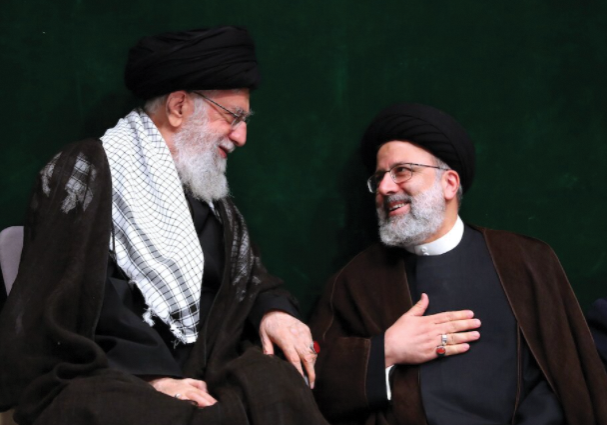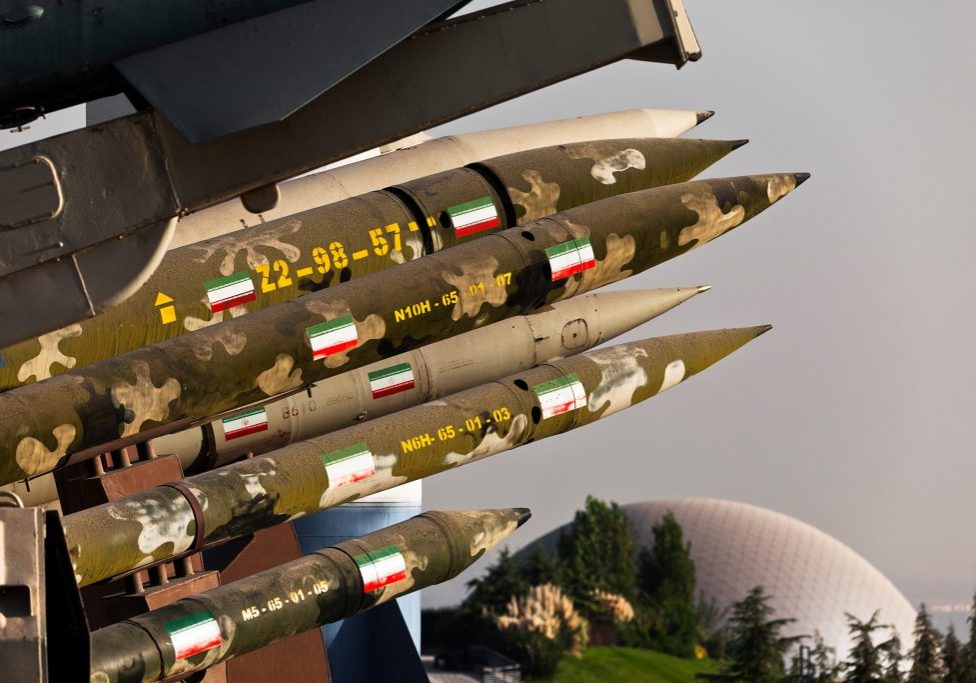Australia/Israel Review
Essay: Rational Action
Jun 30, 2010 | Amitai Etzioni
Can a nuclear-armed Iran be deterred?
By Amitai Etzioni
Increasing evidence Iran has embarked on a course that will lead it to develop nuclear arms in the near future has re-intensified the debate about the ways the world should react to such a danger. Questions concerning ways to deal with the proliferation of nuclear arms are of course not limited to Iran, but also include other nations or groups that might employ nuclear arms, especially North Korea and terrorists.
Four possible responses are commonly discussed in dealing with Iran: engagement, sanctions, military strikes, and deterrence. Engagement has been tried, especially since the onset of the Obama Administration (and previously by European governments) but so far has not yielded the desired results. Sanctions are deemed an unreliable tool, as some nations, especially China, have so far refused to authorise them. Also, sanctions, in the past, have often been readily circumvented and have not generated the sought-after effect, even when imposed on nations that are more vulnerable than Iran, such as Cuba and Syria. And sanctions may help solidify the regime in place and subdue democratic opposition. Military strikes are said to be likely to fail. As US Defence Secretary Robert Gates stated on April 13, 2009, “Militarily, in my view, it [a bombing of Iran’s nuclear facilities] would delay the Iranian program for some period of time, but only delay it, probably only one to three years.”
Hence the growing interest in deterrence, that is, in tolerating a nuclear-armed Iran but keeping it at bay by threatening retaliation in kind should it use its nuclear weapons. Although the Obama Administration has not formally embraced this position, several observers believe that this is the direction it is headed. Indeed, a statement by Secretary of State Hillary Clinton in Thailand on July 22, 2009 was understood as implying such an approach. She stated, “If the US extends a defence umbrella over the region, it’s unlikely that Iran will be any stronger or safer, because they won’t be able to intimidate and dominate, as they apparently believe they can, once they have a nuclear weapon.”
Fareed Zakaria, the Editor of Newsweek International, a Washington Post columnist, and a frequent TV commentator, is a leading advocate of deterrence. In his article “Don’t Scramble the Jets,” he argues that Iran’s religious leaders comprise a “canny (and ruthlessly pragmatic) clerical elite,” and that military dictatorships like the one that is now forming in Iran “are calculating. They act in ways that keep themselves alive and in power. That instinct for self-preservation is what will make a containment strategy work.” Among academics, Columbia University Professor Kenneth Waltz has written that “It would be strange if Iran did not strive to get nuclear weapons, and I don’t think we have to worry if they do. Because deterrence has worked 100 percent of the time. After all, we have deterred big nuclear powers like the Soviet Union and China. So sleep well.”
In the following paragraphs, I focus on the question of whether deterrence might work and, if not, what kind of military strike – if any – could have the required effect.
Rational Actors?
One of the few points on which there is wide agreement is that for deterrence to work, the leaders of the nations that command nuclear arms must be rational. The same holds for terrorists who may acquire nuclear arms one way or another. In effect, a small cottage industry has developed of popular authors and researchers who argue that both heads of states and terrorists do act rationally, and thus – fearing retaliation from other nuclear powers – they will not employ their nukes.
Rationalist champions of deterrence often draw on the same assumption as mainline economists do: that people are rational. One way economists protect this assumption from obvious criticism is by using one data point to assess both the intentions and the actions of the person involved. Thus, economists have argued that if a person who never drank wine – and had no intention of drinking wine – suddenly purchased a bottle of wine, this must have been a rational choice – because otherwise why would he have bought it? And they state that when a person chooses to become a criminal, he or she “must have” weighed the pros and cons and made a rational decision that being a criminal was the optimal choice. As Nobel Laureate George Stigler pointed out, “A reason can always be found for whatever we observe man to do,” which “turns utility into a tautology.”
This approach violates a basic tenet of science – that propositions are to be formulated in ways that can be falsified. Using the same academic sleight of hand, the champions of deterrence maintain that whatever the leaders of a nation do is rational, because one can find some reason according to which their actions make sense. This line of reasoning would also make dropping nuclear bombs and ignoring the effects of retaliation “rational” – say, because the leaders believe that their nation will fare better in such a war than their enemy, or because such bombing would bring about a rapture that provides a shortcut to heaven.
The champions of deterrence further defend their position by suggesting that the only alternative to being rational is to be irrational, which is treated as tantamount to crazy. They then argue that Iran’s leaders, terrorists, and even Kim Il-sung and his son Kim Jong-il are not insane people. They demonstrate this by showing that these leaders react, in sensible ways, to changes in the world around them.
Other scholars who have studied terrorism further uphold this line of thinking by explaining that terrorists act strategically and not irrationally. In an article entitled “Deterring Terrorism: It Can Be Done,” UCLA Professor Robert F. Trager and Columbia doctoral candidate Dessislava P. Zagorcheva observe that “The assertion that terrorists are highly irrational is contradicted by a growing body of literature that shows that terrorist groups… choose strategies that best advance them. The resort to terror tactics is itself a strategic choice of weaker actors with no other means of furthering their cause.”
The trouble with this line of reasoning is that it makes a jump from showing that the rulers of countries such as Iran and North Korea, as well as terrorists, are not irrational – they have clear goals, find means suitable to their goals, and respond to facts and logic – to assuming that they hence act rationally, and reach the same conclusions as the observers do from changes in facts.
However, leading sociologists, notably Talcott Parsons, have long pointed out that there is a third category of decision-making and behaviour, which they called “nonrational”. This may at first seem like typical academic hair-splitting. In this case, though, it points to a major category of human behaviour, where people act in response to deeply held beliefs that cannot be proven or disproven; for instance, their sense that God commanded them to act in a particular manner. People have long shown that they are willing to kill for their beliefs, even if they will die as a result. True, they respond to facts and pressures, but only as long as those factors affect the ways they implement their beliefs – not the beliefs themselves. Thus, a religious fanatic Iranian leader may well believe that God commands him to wipe out Tel Aviv, may calculate whether to use missiles or bombers, and what season to attack, but not whether or not to heed God’s command to kill the infidels.
In “Can Iran Be Deterred? A Question We Cannot Afford to Get Wrong,” National Review Deputy Managing Editor Jason Lee Steorts writes, “[Iran’s] religious zealotry causes it to exaggerate the significance of issues that are, objectively speaking, only tangentially related to its interests. The Israeli-Palestinian conflict, for instance, has no direct bearing on Iran’s security, but much of the regime sees it as fundamental to Iranian interests and even to Iran’s identity as a Muslim nation.” This is an example of nonrational, not irrational, thinking.
Does the Past Predict the Future?
Related to the rationality thesis is an argument based on the historical record. Waltz writes, “It is now fashionable for political scientists to test hypotheses. Well, I have one: If a country has nuclear weapons, it will not be attacked militarily in ways that threaten its manifestly vital interests. That is 100 percent true, without exception, over a period of more than fifty years. Pretty impressive.” Zakaria writes, “Deterrence worked with madmen like Mao, and with thugs like Stalin, and it will work with the calculating autocrats of Teheran.”
Such arguments fail on several grounds. First, as we learn in Logic 101, the fact that all the swans you see are white does not prove that there are no black ones. The fact that so far no nukes have been employed (since 1945, after which the deterrence system was instituted) does not prove that no such incident will occur in the future. This is especially true as the number of actors increases and they include a number of fanatics.
Moreover, the historical record reveals several occasions in which nations governed by leaders who are considered far from irrational came dangerously close to nuclear blows. India and Pakistan earned this dubious title several times. John F. Kennedy almost hit the “launch” button during the Cuban Missile Crisis in 1962. Moshe Dayan nearly did as well, readying the Israelis’ nuclear arsenal for use in the Yom Kippur War. Mao planned to drop a nuclear bomb on the USSR during a 1969 border dispute.
The pro-deterrence champions point to the same incidents as demonstrating that deterrence did work; after all, the various nations pulled back from the brink, albeit some at the very last moment. However, as I see it, heads of states have shown themselves in the past to be very capable of making gross miscalculations that cost them their lives, their regimes, and all they were fighting for – take Hitler, for instance. Similarly, the Japanese, when they attacked Pearl Harbor, believed that they would be able at least to drive the US out of their part of the world. And both the Germans and the French completely misjudged the course of World War I. History is further littered with numerous, less grand miscalculations, from Bernard Montgomery’s “a bridge too far,” to Pickett’s charge in the American Civil War.
Above all, there are no iron laws in history. What did not happen before provides no guarantee that it will not happen tomorrow. It is hence rational to apply here the rule that if the potential disutility is very large, avoiding it must govern the decision, even if the probability of suffering that disutility is very low. A simplistic way to highlight this point is to note that rational people will happily accept a bet for $1 if the probability of winning is 99 out of 100. They will do the same for $10, and even $100 – but not for $1,000,000. The reason is that although the probability of losing remains the same and is very small, the cost of losing is so high (assuming those who bet will have to pledge their future income as collateral) that the disutility is so great that it makes sense to refuse such a bet. Obviously, the disutility of being attacked with nuclear arms is so high that even if the probability that deterrence will fail is very low, it makes sense to go a long way to avoid it.
One should add that the matter of probabilities is essential here. Many of the champions of deterrence use hedged wording to explain that the risk of attack is very low. In “Terrorism: The Relevance of the Rational Choice Model,” George Mason economist Brian Caplan writes, “While millions believe that they earn vast rewards in the afterlife if they engage in terrorism or – better yet – suicidal terrorism, only a handful put their lives on the line.” Well, a handful may well suffice. Similarly, when Waltz writes, “I don’t notice that many religiously-oriented people act in ways that will result in the massacre of thousands of people. I think people are people. I don’t think heavenly rewards motivate very many people,” one cannot but note that many hundreds of thousands of people have been slaughtered because of one faith or ideology or another; Armenians by Ottomans, Jews by Hitler, Russians by Stalin, and many more.
Nor can one ignore that terrorists have a non-trivial probability of getting their hands on nukes and finding ways to deploy them.
Side Effects: Undermining the Norm
Clearly the more nations that command nuclear arms, even if one disregards the differences in the mentalities and predispositions of those who now seek nukes compared to older members of the club, the greater the danger that some nation will employ these catastrophic weapons. The champions of deterrence scoff at this danger and stress that rather few nations have acquired nukes over the last decades, in contrast to the fear voiced early in the nuclear age. Thus, President Kennedy observed that soon there might be “10, 15, 20” countries with a nuclear capacity. Actually, over the decades that followed, a considerable number of countries capable of developing nuclear weapons have refrained from progressing down this road, including Canada, Sweden, Italy, Brazil, Argentina, South Africa, South Korea, and Taiwan.
Although it is true that proliferation has been slower than some initially predicted, those who draw on this fact to claim that we have nothing to worry about disregard the fact that we are at a tipping point at which the old restraining regime may give way to a nuclear free-for-all. For decades, we were able to promote a taboo on nuclear weapons, well depicted in The Nuclear Taboo by Brown University Professor Nina Tannenwald. Major segments of the population of the world and their leaders embraced the precept that nations should refrain from acquiring nukes, and that giving them up was the desired policy. The taboo is at the foundation of a treaty signed by 189 nations, the Nuclear Non-Proliferation Treaty (NPT). Both the taboo and the treaty were undergirded by various diplomatic and economic measures, as well as some arm-twisting.
In recent years, though, as North Korea thumbed its nose at the NPT and Iran seemed increasingly to move toward developing nuclear weapons, the taboo has weakened and respect for the NPT has waned. Moreover, the champions of deterrence in effect argue that the taboo and treaty are so yesterday, that more and more countries will obtain nukes, and that we ought to get over it, adjust to the world as it is now, and move on. Thus, University of Notre Dame Professor Michael Desch* writes, “If [during the Cold War] we could live with those rogue nuclear states [the Soviet Union and China], which were willing to sacrifice millions of their own people to advance an eschatological ideology, there is scant reason to think Iran poses a more serious threat… it might just be time to stop worrying and learn, if not to love, at least to tolerate the Iranian bomb.”
As I see it, the taboo and treaty are indeed being tested, but it is too early to write them off. If Iran can be stopped, which in turn would increase the chances that we could pressure North Korea to reconsider its course, we may be able to save the nuclear abstinence regime. In contrast, there is little doubt that if we allow Iran to develop nukes, other nations will seek them, including Saudi Arabia, Egypt and, some believe, even Jordan. Also, as a counter-measure against North Korea, Japan and South Korea would not be far behind if the taboo is broken so flagrantly in the Middle East. Brazil and Argentina may well also follow suit as more and more “important”’ nations acquire nukes. In short, applying deterrence to Iran rather than trying to dissuade it from developing nukes in effect entails opening the world to truly large-scale proliferation that would significantly increase the probability of nations coming to nuclear blows and terrorists finding places to get their hands on nukes.
Side Effects: Shield and Blackmail
Even if Iran never drops its nukes on anybody, once it demonstrates that it has acquired them – say, by testing them – these weapons would have considerable consequences for our security and that of our allies. The side effects of allowing Iran to obtain nukes are well spelled out by Emanuele Ottolenghi, the former executive director of the Transatlantic Institute in Brussels. I hence quote him at some length. He writes:
The fact is that an Iranian bomb would enable Teheran to fulfill the goals of the revolution without using it. A nuclear bomb is a force multiplier that, as US President Barack Obama aptly said, constitutes a ‘game changer’. Iran’s success will change the Middle East forever – and for the worse. Under an Iranian nuclear umbrella, terrorists will be able to act with impunity, and its neighbours will enter into a dangerous arms race. Less understood are the dynamics that will emerge if Iran chooses not to use the bomb against its enemies. It matters little that Teheran may act rationally. If Iran goes nuclear, the Western world will have to negotiate a Middle East Yalta with Teheran – one that may entail a US withdrawal, an unpleasant bargain for the smaller principalities of the Gulf’s shores and an unacceptable one for Israel and Lebanon’s Christians.
Last but not least is the risk that Iran, or some other rogue nation, will slip a nuke or two to terrorists, or they will obtain one without consent of the leaders with the help of one group or another, such as the Revolutionary Guard. The champions of deterrence argue that it suffices to deter such nations from sharing nukes with terrorists for us to declare that if terrorists use such weapons, we will hold responsible the nation that provided them. However, this argument assumes a much more reliable level of nuclear forensics than we command so far. We may well be unable to determine the source of a bomb, or it will take months, after which striking a nation with nuclear bombs in cold blood may well not seem a very credible counter-threat.
One hardly needs to elaborate any further that even if Iran can be deterred from employing its nukes directly, there are strong reasons to favour an Iran without nukes.
Costs of Prevention
So far, the discussion has focused on the question of whether an Iran equipped with nuclear arms poses a serious security threat that cannot be reliably deterred by the threat of a second strike. However, even if one agrees that Iran does pose a significant threat, one still must ponder the costs of the only viable alternative to deterrence – a military strike (We already suggested that engagement and sanctions are unlikely to have the required effect).
Opponents of a military strike argue that (a) the location of some key sites may not be known; (b) several sites are well protected; (c) some of the sites are in highly populated areas, and bombing them may cause a great number of civilian casualties; (d) in the past, bombing such sites was not very effective, and the bombing might delay the development of nuclear programs only slightly or even lead Iran to accelerate its program in reaction, and refuse all future inspections by the International Atomic Energy Agency (IAEA).
The fact that all these objections deal with bombing nuclear sites points to a different military option. It is one that has not been discussed in public so far and at first blush may seem controversial. Note should hence be taken that it has been previously employed, indeed on several occasions. The basic approach seeks not to degrade Iran’s nuclear capacities, but to compel the regime to change its behavior, by causing ever-higher levels of “pain”. It starts with demanding that Iran live up to its international obligations and open up its nuclear sites by a given date. If this demand is not heeded, the next step would entail bombing of Iran’s non-nuclear military assets (such as the headquarters and encampments of the Revolutionary Guard, air defence installations and radar sites, missile sites, and naval vessels that might be used against oil shipments). If such bombing does not elicit the required response, the bombing of select dual-use assets will be undertaken, including key elements of the infrastructure, like bridges, railroad stations, and other such assets, just the way the US did in Germany and Japan in World War II. (The reference is to dual-use assets, that can be bombed at night, after proper warning, to minimise civilian casualties, and not to purely civilian targets such as was done in Dresden and Tokyo.) If still more tightening of the screws is needed, Iran could be declared a no-fly zone. This kind of military action is akin to sanctions – causing “pain” in order to change behaviour, albeit by much more powerful means.
Note that the location of these assets is known, that it matters not if one misses some, that they are not well hidden nor well protected, and bombing them will not unleash radioactive materials. In short, from a strictly targeting viewpoint, they are much less problematic than nuclear sites.
Critics are likely to argue military action will help those in power in Iran to suppress the opposition, or make the opposition support the regime. However, the regime is going all out to repress the opposition anyway, and a weakening of the regime following the military strikes may provide an opening for the opposition.
Coping with Side-effects
Critics of a military strike fear that Iran will retaliate by unleashing Hezbollah and Hamas, making our lives more difficult in Iraq and Afghanistan and disrupting the supply of oil to us and to our allies. These concerns do not apply to the decision of which military mode is the proper one, but to the question of whether a military option should be considered in the first place. In response, I suggest that a nation that holds that it cannot cope with such countermeasures should not only forego its claim to the status of a superpower, but also cease to see itself as much of an international player.
In short, engagements and sanctions are very unlikely to stop Iran from becoming a nuclear power. Hence, increasing attention is devoted to containment. It may well work, but given the high disutility of a nuclear strike by Iran, even a relatively small probability that Iran may use its nukes is unacceptable. The argument that the rulers of Iran are not irrational disregards that quite a few national leaders have in the past “bet” their lives and regimes and lost. Hence, a military option should not be off of the table. However, bombing Iran’s nuclear sites might not be the most effective one.
Dr. Amitai Etzioni is professor of International Relations at George Washington University and author of more than a dozen books on politics, sociology and philosophy, including most recently Security First: For a Muscular Moral Foreign Policy (Yale, 2007). © Military Review, reprinted by permission, all rights reserved.
* In the print reproduction of this article, it referred to Professor Michael Desch as being from Texas A&M University. In fact, his current position is at the University of Notre Dame.
Tags: International Security






